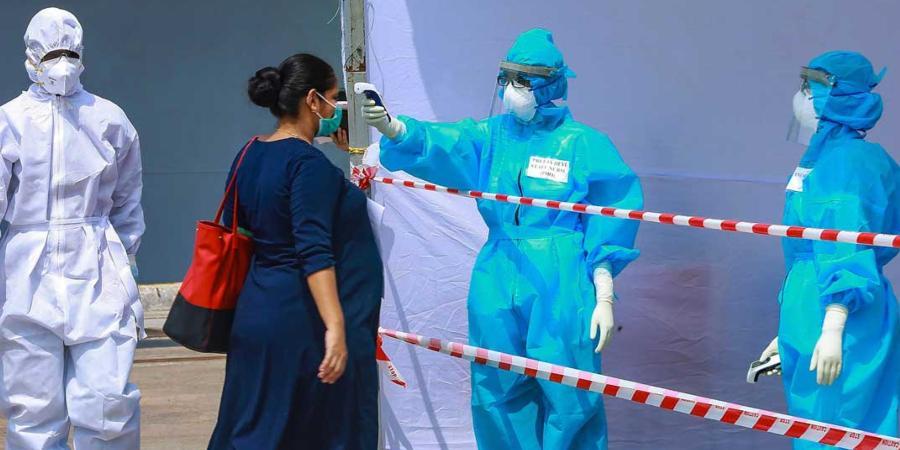
Centre may invoke NDMA in Kerala, N-E states to curb COVID spread
The Centre is contemplating invoking the National Disaster Management Act (NDMA) to enable them to issue orders to COVID-19 impacted states to impose containment strategies and control movement.

The Centre is contemplating invoking the National Disaster Management Act (NDMA) to enable them to issue orders to COVID-impacted states to impose containment strategies and control movement.
Media reports said that the Centre may be forced to use the NDMA, especially if the states fail to follow the central advisories on controlling movement.
According to a report in The Times of India, the Centre is trying to convince some severely affected states like Kerala and the north-eastern states, to carry out micro-containment measures given in their central advisories to curb the infection from spreading in the community.
The Centre is worried that if COVID spreads unchecked it could also lead to mutation and the emergence of new variants.
A new variant could hamper the Centre’s vaccination programme. The report stated that though the Centre had set aside the NDMA since May, they may reluctantly use it to enforce stringent containment measures in some states as the situation cannot be allowed to drift.
The significant loss of lives and resources during the second wave weighs heavily on the minds of people and the government. “We cannot allow the situation to continue, there are wider ramifications to failing to bring down infections. A new variant can impact our vaccine programme,” said an official, TOI reported.
Also read: Bhubaneswar first Indian city to attain 100% vaccination against COVID
The situation is especially worrying since states in the north-east like Manipur, Meghalaya, Mizoram and Nagaland are witnessing a surge in infections. However, the Centre is waiting for a report from the teams of the national centre for disease control to gauge how these states were tackling the detection and the care of their COVID patients.
The situation in Kerala however continued to be a major source of concern for the Centre. With the festival season (Onam) around the corner, the Centre fears that intermingling between the people would lead to a further spike.
Also, central officials have warned the state not to depend on the national sero-prevalence survey results, which shows that exposure to infection is low in the state. It survey was meant to provide a more national-level picture and was not to be interpreted by the states for their own use, said the official, stated the media report.
Kerala however has maintained that its low mortality rate and its robust health infrastructure so far will help it sail through. According to the state authorities the Delta variant was responsible for the rise in cases, media reports added.
Also read: 46 districts with more than 10 % positivity rate: Centre warns states
The Centre however remains apprehensive that by not imposing strict measures preventing people from intermingling the disease would spread and neighbouring states would also be affected. A senior official said the R value or the number of people a person can effect in the state is more than 1.2, which is a sign that the infection is spreading.
It is believed that the large-scale replication of the infection in any state is not good because then no one is safe. Kerala is not an island, though they have a good health system, low mortality rate but if they transmit the infection to other states then who will stop the deaths there, pointed out the official, said the TOI report.
According to provisions in the NDMA, if the positivity rate is more than 10 per cent, then “significant restrictions” have to be carried out in that area. Currently, there are 10 districts in Kerala which show a positivity rate of more than 10 per cent. The Centre has suggested that the state should carry out effective measures to contain COVID-19 cases in a localised area.

